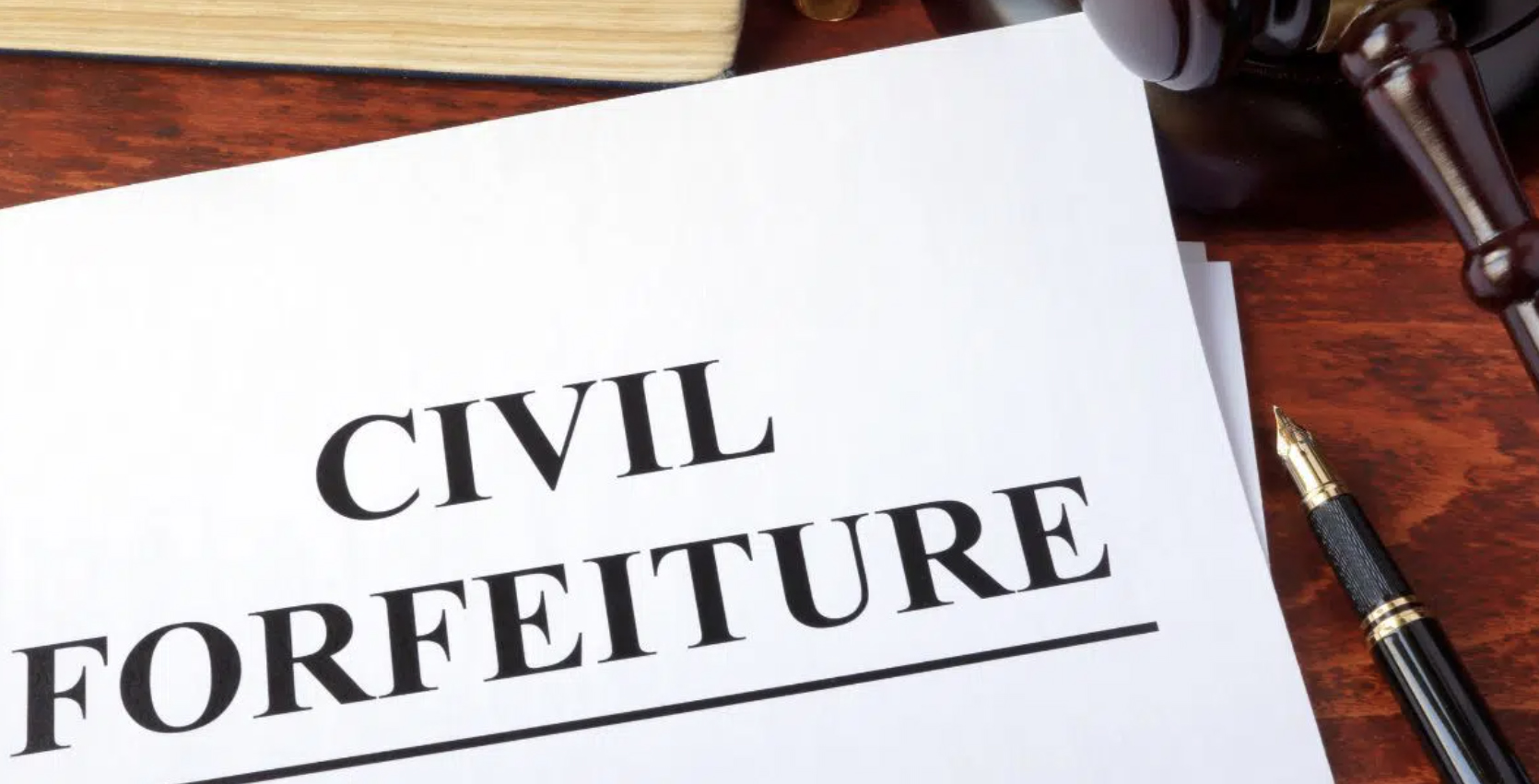Civil Forfeiture Part 1: The Law, Theory, and Legal Challenges When Seizing Assets Related to a Crime.
In Timbs v. Indiana, 139 S.Ct. 682 (2019), the United States Supreme Court struck down Indiana’s civil forfeiture laws. Civil forfeiture allows law enforcement officials to legally seize property, cash, bank accounts, vehicles, and other assets for alleged violations of law, without charging the property owner with a crime. Following the decision in Timbs, attorneys are now bringing civil actions to challenge the constitutionality of civil forfeiture laws.
We are following this evolving area of law and we’ve seen first-hand how this process can be abused. In this first part of our three-part series focused on civil forfeiture actions, we’ll explain the basic history and theory of civil forfeiture laws and give you a preview of some of the challenges being raised. First some background…
What is a civil forfeiture?
The federal government and each state have legal processes to allow the government to take property and other assets belonging to criminal suspects. The original purpose of this law was to fight organized crime and provide a means to recover assets from the criminals involved. In the 1980s, the forfeiture laws were expanded and utilized as a tool in the War on Drugs and other federal crimes.
These proceedings are civil (as opposed to criminal) in rem actions (meaning the action is against property not against a person) where certain property is considered the defendant under a legal fiction that the property is the guilty party. Generally, the government can seize property where there is probable cause to believe that the property is connected to some criminal activity. Then the government files a civil case against the property and asks the court to hold a trial to determine whether the property should be forfeited as a civil penalty for criminal behavior. The property owner (called the “claimant”) may challenge the forfeiture in court.
Traditionally, forfeiture cases were brought against the instrumentality of the crime where the person responsible for a criminal violation was not always within the personal jurisdiction of the government. The law developed as a means to penalize the individual responsible for the crime when the individual could not be prosecuted, but where the property used as an instrument of the crime or obtained via a crime was located within the court’s jurisdiction.
In California, for example, law enforcement agencies are authorized to seize assets for violations of the Uniform Controlled Substances Act (Health & Safety Code §§11000 et seq.)
Criminal versus civil protections
Because these forfeiture actions are civil in nature, constitutional protections guaranteed to criminal defendants such as a court-appointed attorney, the exclusionary rule, and the requirement for a unanimous jury verdict are not given to claimants opposing a forfeiture action.
Also, since the action is brought against the property and not the wrongdoer personally, the law provides that the owner’s actions are irrelevant and the property can be forfeited without the owner violating any law. The ultimate issue is whether the fictional guilty property has a relationship to the crime, not to the property owner’s activity or transgression.
Instances of abuse and overreaching power
In recent years civil forfeiture laws have come under fire. Courts are now addressing situations of abuse and the use of excessive power along with potential financial incentives for law enforcement when pursuing claims against property. Many civil law attorneys have argued that civil forfeiture is becoming more punitive in nature.
In some cases, law enforcement has evaded the usual burden of proving a crime beyond a reasonable doubt by replacing criminal protections with the civil forfeiture system because there is no presumption of innocence.
Federal law and the law of some states provide that local and/or federal law enforcement may receive a percentage of the value of the property forfeited, giving law enforcement agencies a financial incentive to seize property.
Coming up in Part 2 of the civil forfeiture series…
As we dig deeper into this issue, we will explain how legal scholars, such as Justice Clarence Thomas, have suggested that civil forfeiture laws, applied beyond their historic scope, may violate due process. Also, the US Supreme Court has recently held that civil forfeiture may also violate the excessive fines clause of the Eighth Amendment.
At Evans Kingsbury LLP we are civil law attorneys with decades of litigation and appellate experience, including civil forfeiture law challenges. If your property has been seized as part of a civil forfeiture action, call us today at (707) 596-6090 or fill out our easy contact form to discuss your case.

